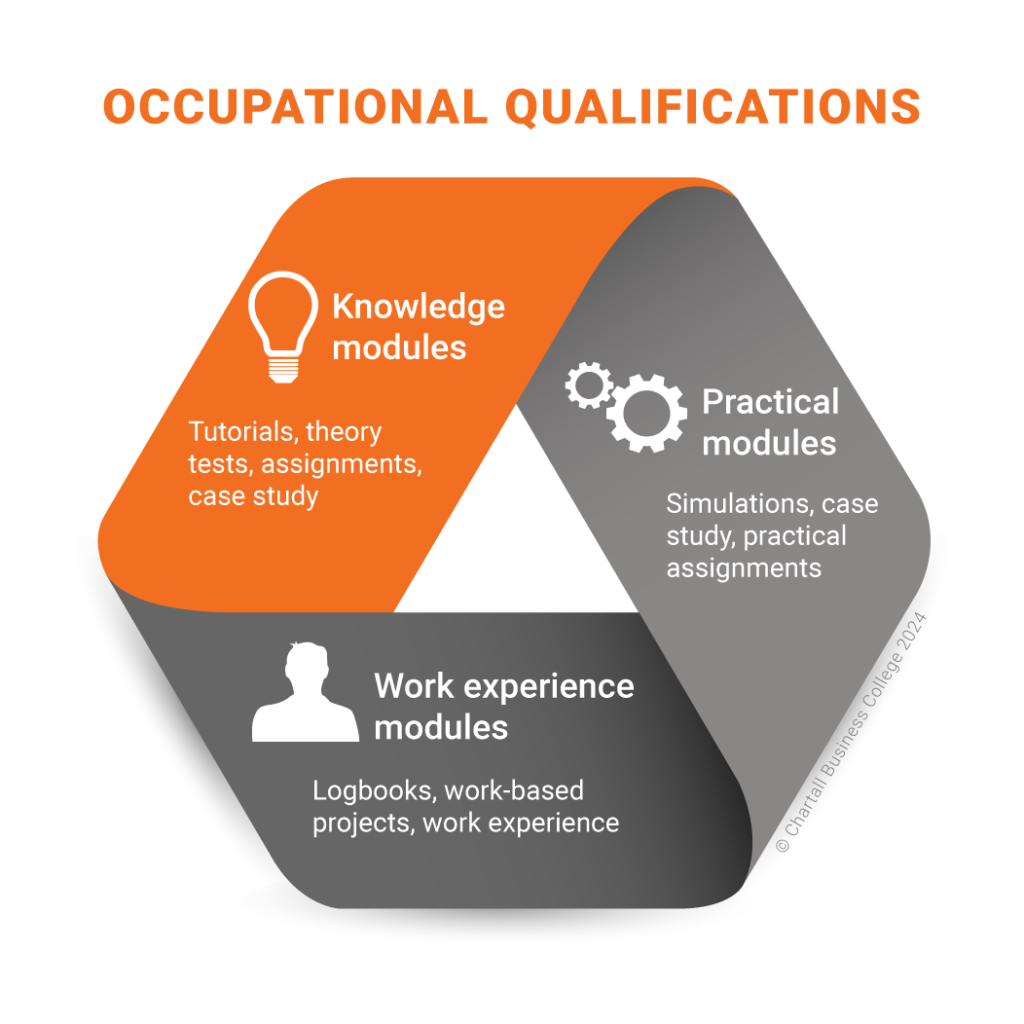Occupational Programmes- Towards a Skilled and Qualified Workforce in SA

In a rapidly changing global economy, effective workplace education and training is critical in addressing skills gaps, promoting economic growth, enhancing productivity and global competitiveness. The education landscape in South Africa is entering an exciting era as it prepares for the full-scale implementation of occupational qualifications, under the auspices of the Quality Council for Trades and Occupations (QCTO).
With a significant focus on work experience and practical skills, occupational programmes are designed to meet the needs of the workplace, ensuring learners have the skills and knowledge to be proficient and job-ready for their chosen occupation.
Background
The National Qualifications Framework (NQF) is a comprehensive system for the classification, co-ordination, registration, and publication of articulated and quality-assured national qualifications. The NQF comprises three qualifications sub-frameworks namely the General and Further Education and Training Sub-Framework (GFETQSF), Higher Education Qualifications Sub-Framework (HEQSF), and. Occupational Qualifications Sub-Framework (OQSF).
Unit standard-based qualifications also called “Legacy Qualifications” have reached their registration end date in the middle of last year, with the last date of enrolment set for 30 June 2024, and a teach-out period up to 30 June 2027. Importantly all credits and qualifications achieved in the unit standard-based system remain valid with students’ achievements recorded on the National Learners` Records Database (NLRD). The expiration of legacy qualifications means the myriad of qualification types, leading to much confusion about the level and complexity of qualifications, will come to an end.
The OQSF
The Occupational Qualification Sub-framework (OQSF) is one of three sub-frameworks that comprise the NQF. The OQSF is the repository for all Occupational, Professional and Trade qualifications, which are designed in and for the workplace. The OQSF provides for the development of Occupational Qualifications that are occupationally focused and designed to meet the needs of the workplace. Qualifications are developed by subject matter experts and are quality assured by the QCTO.
Until the revised OQSF was gazetted on 29 October 2021, all Occupational Qualifications had been limited to being classified as “Occupational Certificates”. The revised OQSF aligns the terminology used in the OQSF with that used in the rest of the NQF. Going forward the framework provides for Occupational Certificates and Diplomas at varying levels of the NQF. The OQSF policy also allows for the recognition of Skills Programmes by the Quality Council for Trades and Occupations (QCTO), a type of qualification that resembles “short courses” or a form of “micro-credentialing.”
At the heart of the NQF is transferability, quality and Recognition of Prior Learning (RPL) promoting flexibility and mobility in the education and employment sectors. Individuals who have acquired skills and knowledge through work experience or other means can have their skills and knowledge assessed and recognised as part of a qualification.
What makes occupational qualifications different?
Occupational qualifications are designed to equip individuals with the knowledge, skills, and competencies required to perform specific job roles effectively and efficiently. Central to the design of occupational qualifications are the inclusion of Knowledge, Practical and Work Experience modules.


Knowledge modules encompass the academic and theoretical aspects of a particular occupation. Knowledge modules ensure that learners have a solid understanding of the underlying concepts, theories, and best practices related to their chosen occupation.

Hands-on skills and real-world application of knowledge are the focus of Practical modules. Practical application helps bridge the gap between theoretical knowledge and job performance, making graduates job ready.

Work experience modules, involve learners working in a real job environment related to their field of study. This practical exposure allows learners to apply their theoretical knowledge and practical skills in a real work setting.
How are learners assessed?
After successful completion of an occupational programme a Statement of Results (SOR) is issued by the Skills Development Provider (SDP). The SOR is presented to an accredited Assessment Centre who administers the External Integrated Summative Assessment (EISA), which serves as the final standardised national examination for a particular occupation. EISA’s are undertaken at accredited Assessment Centres throughout SA. In the case of Skills Programmes, such assessment takes the form of a Final Integrated Supervised Assessment (FISA) administered by the SDP.
On successful completion of the final assessment the Occupational Certificate or Diploma is awarded by the QCTO.
Benefits for learners
As mentioned, occupational qualifications are designed to equip individuals with the knowledge, skills, and competencies required for specific job roles and industries. Here are some of the key benefits of pursuing an occupational qualification in SA:
Improved Employability:
Occupational qualifications are developed in close collaboration with industry experts, ensuring that learners acquire skills and knowledge that are highly relevant to the job market.
Clear Career Pathways:
Occupational qualifications provide learners with clear and structured career pathways. Clear pathways ensure learners progress in a particular field, helping learners set and achieve their career goals.
Quality Assurance:
These qualifications are subject to rigorous quality assurance processes, ensuring that they meet national standards and industry benchmarks. This quality assurance gives employers confidence in the qualifications and the skills of the graduates.
Recognition of Prior Learning (RPL):
RPL allows individuals with relevant work experience or informal learning to gain formal recognition for their skills and knowledge.
Lifelong Learning:
Learners can access ongoing professional development opportunities through occupational qualifications.
Enhanced Earning Potential:
With specialised skills and qualifications, individuals may have the opportunity to earn higher salaries and better benefits.
Workplace Readiness:
Many occupational qualifications include practical components, work-integrated learning, and internships. This hands-on experience prepares learners for the realities of the workplace, making them more job ready.
Career Advancement:
Occupational qualifications open doors to career advancement opportunities. These qualifications may be prerequisites for higher-level positions, managerial roles, or specialised career tracks within a particular industry.
How do occupational qualifications benefit employers?
Employers in SA benefit from occupational qualifications as they help create a skilled, competent, and legally compliant workforce. These qualifications lead to a range of advantages, including increased productivity, reduced training costs, and enhanced reputation, ultimately contributing to the success and growth of businesses and organisations.
Occupational programmes are designed for the workplace and forms the core of the Workplace Skills Plan (WSP), contributes to the achievement of B-BBEE goals and skills development targets in the Employment Equity Plan. Occupational programmes may be offered as learnerships, apprenticeships and internships.
Chartall Business College is an innovative and thoroughly modern provider of education and training. We use multiple modes of delivery to enhance our course offerings. Accredited by the Quality Council for Trades and Occupations (QCTO) as a Skills Development Provider (SDP), Chartall offers a wide range of occupational programmes.
For enquiries contact [email protected]
Fast-Track Your Success in Specific Industries
Take the next step toward a rewarding career. Enroll in Chartall’s Occupational Qualifications and equip yourself with the skills employers value. Your success story begins here.


